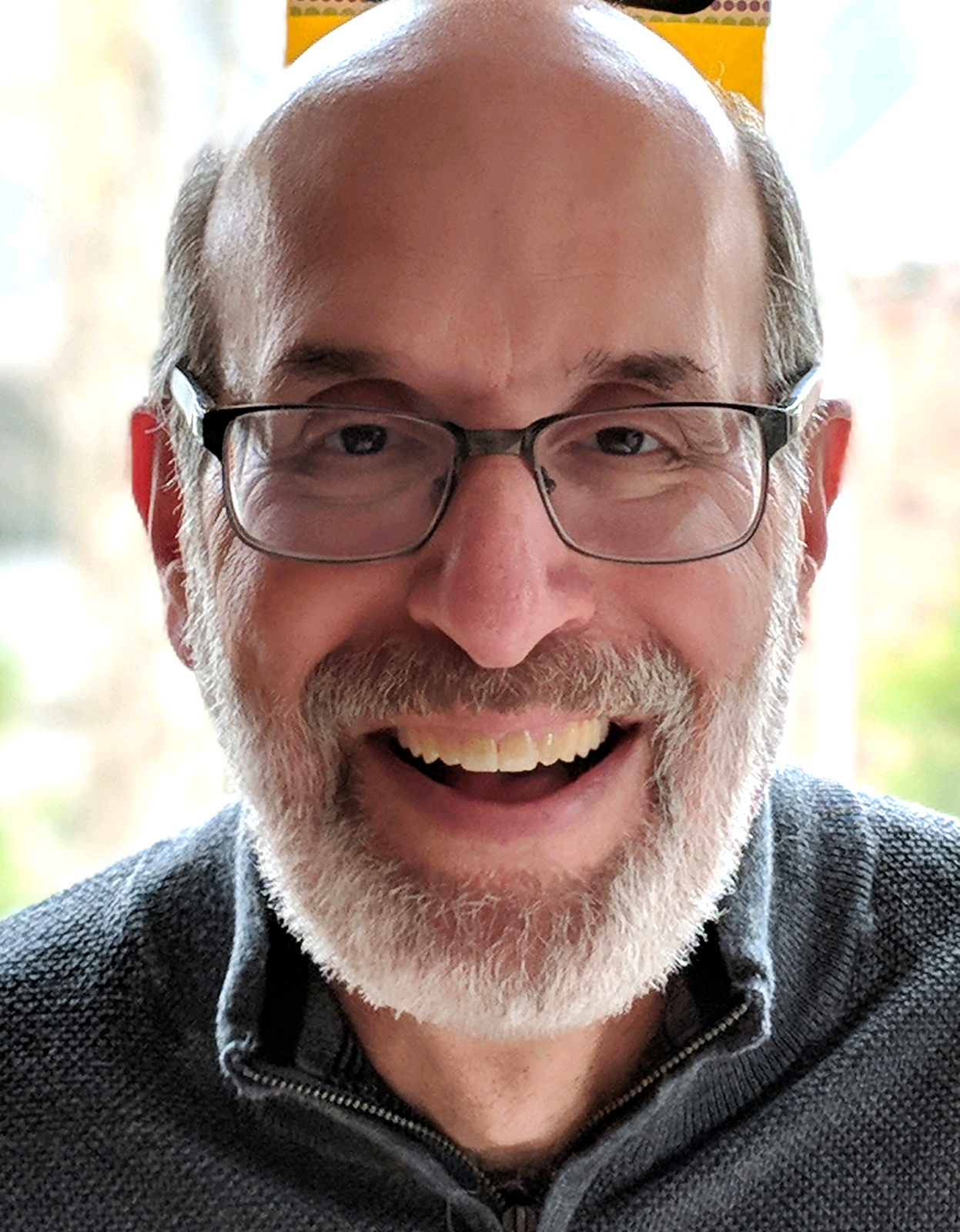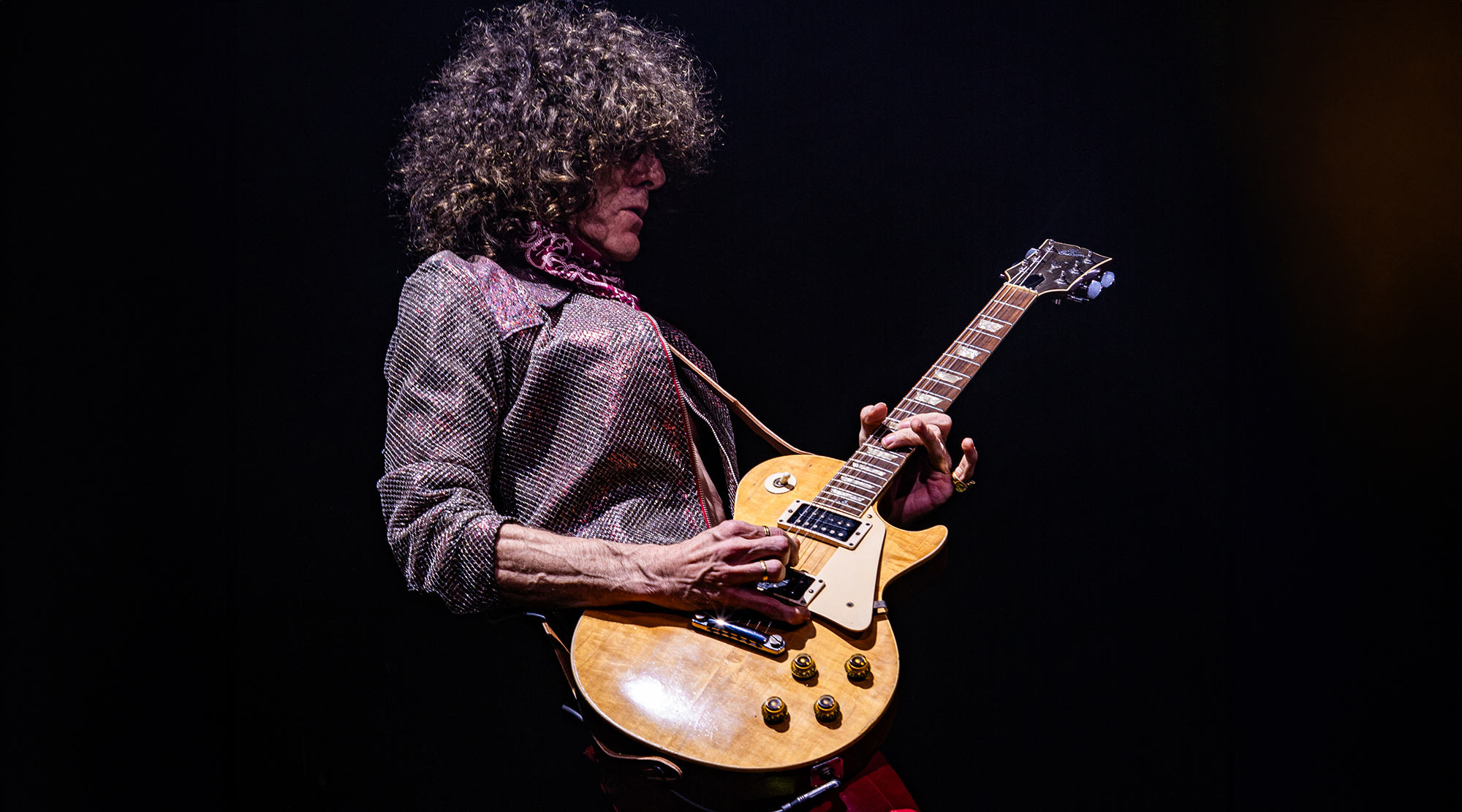“I just started playing a guitar riff, and out of nowhere David screams 'Ooh-wah-ah-ah-ah!'" Dan Donegan tells how a "warm-up" session produced Disturbed's signature hit, "Down With the Sickness"
The band is celebrating the 25th anniversary of 'The Sickness' with a rarities-packed reissue and has plans for a new full-length.
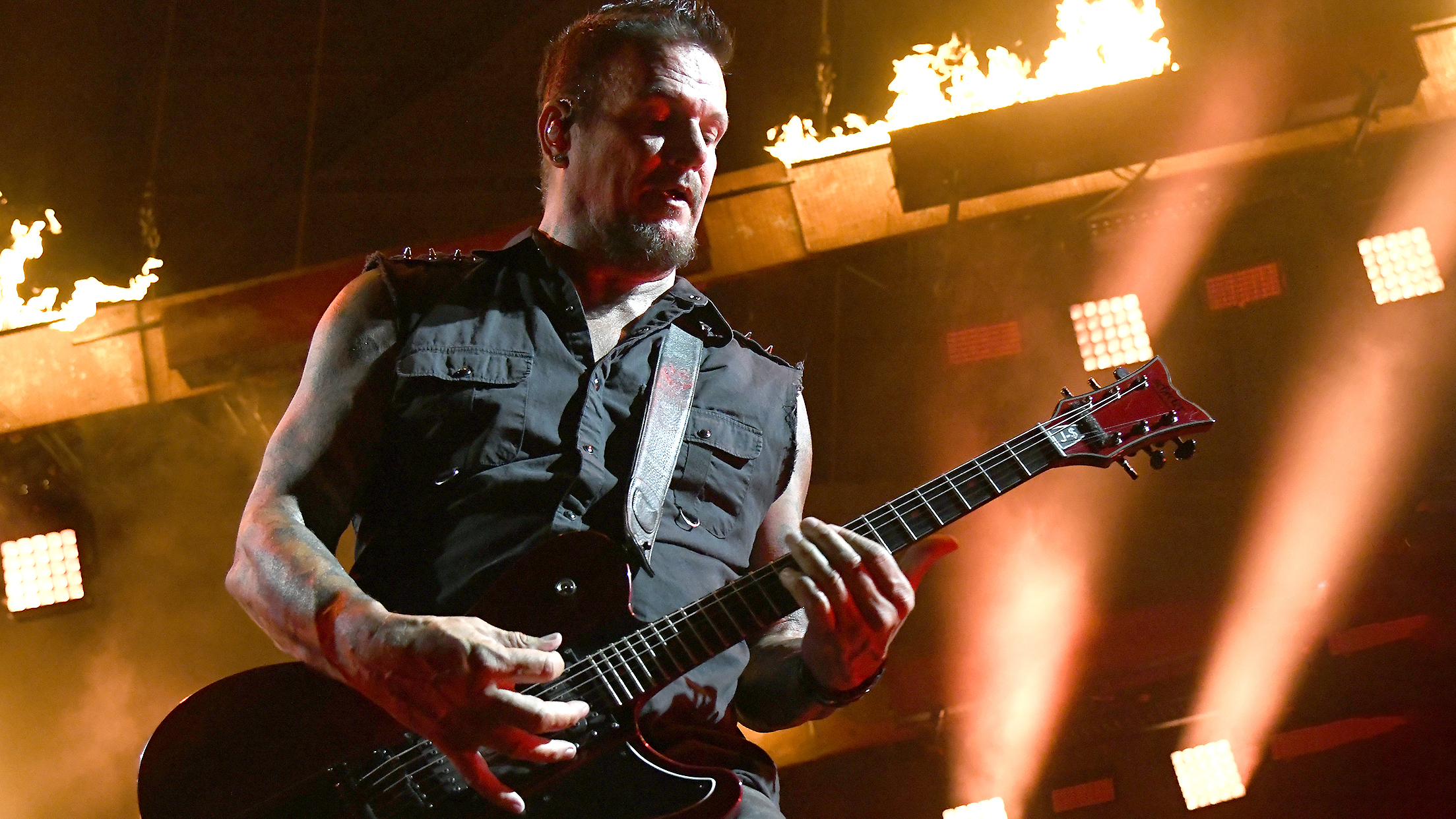
Dan Donegan feels that Disturbed was successful out of the box 25 years ago because of the time spent developing the contents within.
The Chicago-formed heavy rock quartet is currently on the road celebrating the 25th anniversary of its debut album The Sickness — a five-times Platinum smash that spawned two Top 10 rock anthems, "Stupify" and "Down With the Sickness," and launched a career of five multi-Platinum albums, worldwide sales of more than 17 million and 27 Top 10 Mainstream Rock chart hits.
The band is also releasing an anniversary edition of The Sickness on March 7 featuring unreleased demos, rarities and live tracks, while the new single "I Will Not Break" is the first taste of an upcoming ninth studio album.
The self-taught Donegan, who has signature models with Schecter and previously with Washburn, credits the success with a dogged pursuit of originality that dates back to the very first days of Disturbed — in 1996 when Donegan, drummer Mike Wengren and bassist Steve "Fuzz" Kmak, then playing in a band called Brawl, linked up with frontman David Draiman. (Kmak left in 2003, replaced by John Moyer.)
"It's all those years of playing in local bands with different musicians and trying to find the right pieces of the puzzle and finally finding the right group of guys, and writing and trying to get our own identity," Donegan, 56, explains.
"We weren't chasing anything. We weren't reinventing the wheel, but we weren't trying to emulate a certain band, either. We took all of our influences and improvised and wrote the songs and the music we wanted to write."
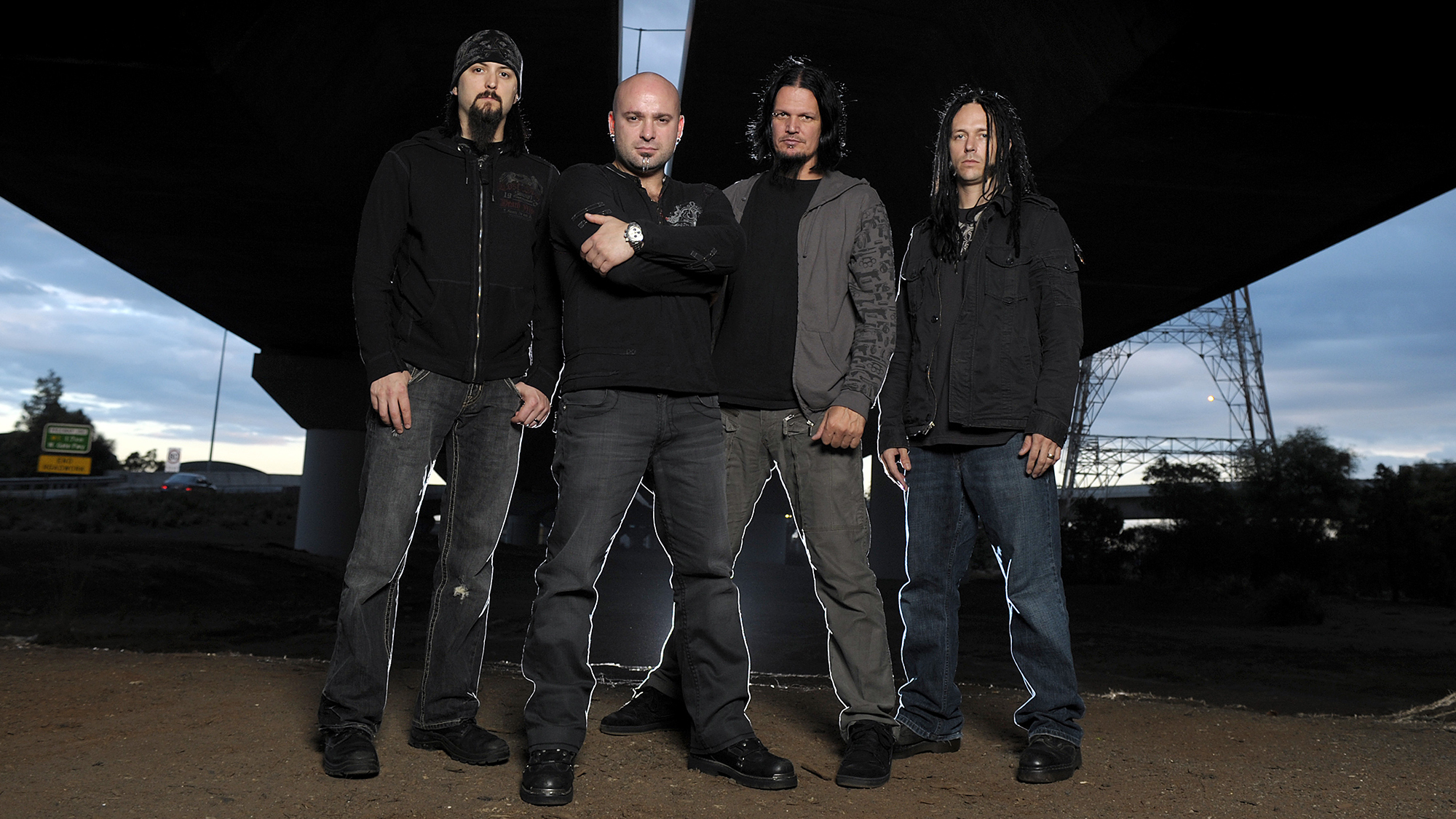
Getting that across was not easy, of course.
Donegan acknowledges that in the Chicagoland scene at the time "a lot of the clubs wanted cover bands, understandably. They weren't confident that any original band was gonna fill the room." So Disturbed — whose first gig, on Thanksgiving weekend of 1996 opening for a Black Sabbath tribute band at Champs in Burbank, Illinois — hatched a subversive plan to straddle the line between its ambitions and the venues' requirements.
"We would play just enough covers to get the shows" — including songs by Korn, Tool and other ’90s nu-metal — "and then start introducing our own original material," Donegan explains.
"The whole goal was to try to be an original band, but we knew we had to play the game a little bit and do enough covers so the bar owners would book us. We were playing to the South Side of Chicago, in the suburbs, neighborhood bars, anything that had live music.
"And after a few shows of the rotation of working these clubs people were starting to memorize our lyrics and ask for our songs, so we started getting rid of some of the other covers and put in more of our own songs.
"And the bar owners realized fans were showing up for our originals and we were packing the places, and became pretty supportive. They didn't care if we were played all originals because we were filling the room.
"I've got to tell you, it was quite shocking to us, 'cause were just a local band and we had fans getting tattoos with our logo and everything. But, not to sound arrogant, we always tried, no matter what size room we were in, to give the impression that we were bigger than the room and not give the impression we were a bar band.
"We wanted them to feel like they're seeing something special that belonged somewhere bigger. We went up with that confidence and delivered. We were never gonna be a band of background music. We wanted attention."
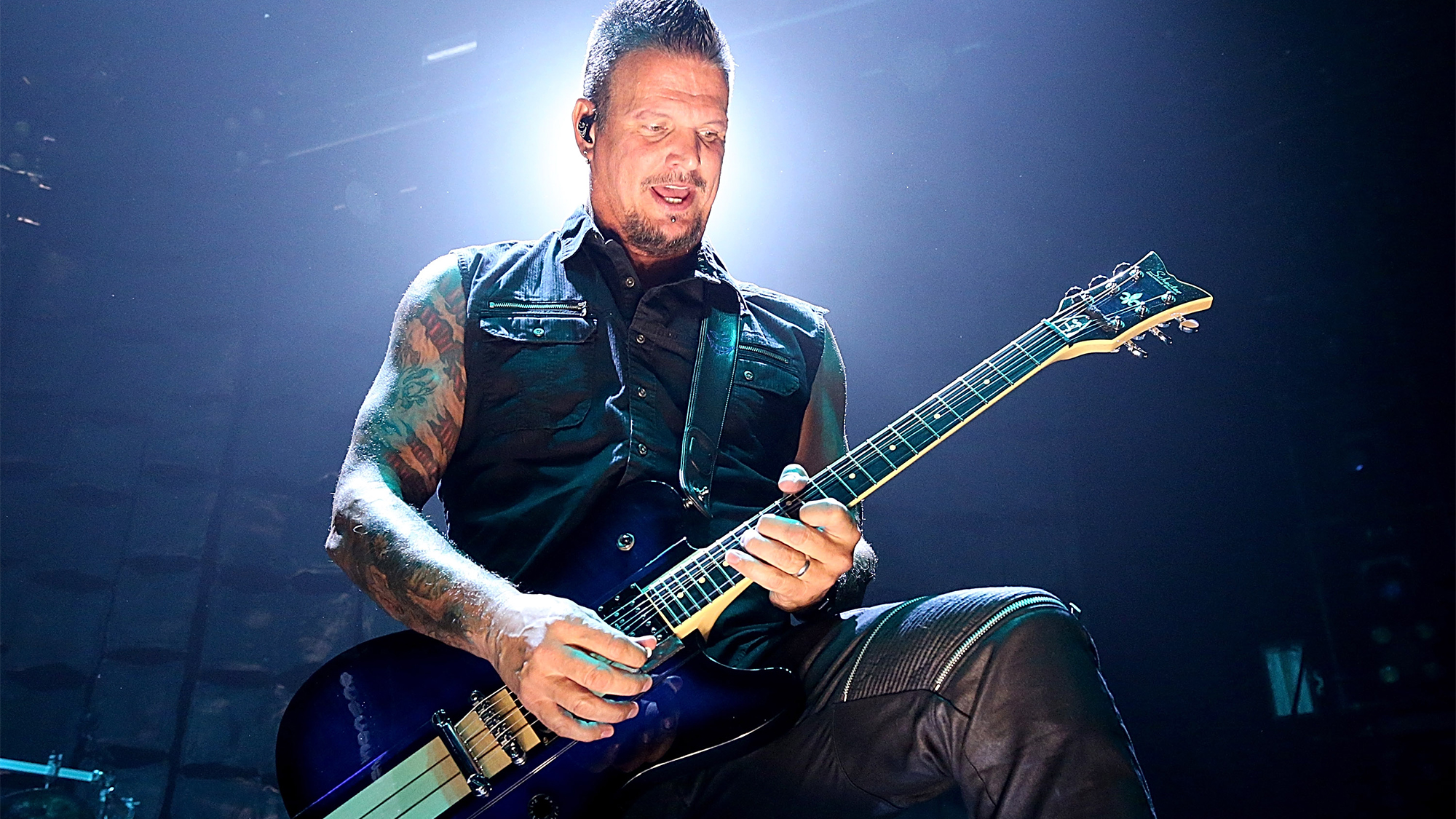
That experience, of course, gave Disturbed an opportunity to hone and refine those songs over a period of months and, in some cases, years. And by the time the group hit the studio with The Sickness producer Johnny K, Donegan says "we were primed. We had songs that were proven with an audience already."
The earliest of The Sickness' tracks to come together, he recalls, was "Want," which dates back to Draiman's audition. "Usually for auditions you play a cover song, just to hear his voice," Donegan says. "David was the only guy who came in and said, 'Nah, why don't you play me some of your original ideas.' We had this electric guitar riff (for 'Want') and he listened and started scatting something that ended up becoming that song. That was our first taste of his voice, with melody and some aggression to it."
Even more striking was "Down With the Sickness," which became a staple of the club sets and, thanks to Draiman's animalistic scat at the start, a sonic standard-bearer for the fledgling band.
"We were in the rehearsal room, just warming up," Donegan remembers of the session, during which he was playing an Ibanez Iceman. "Mikey was doing this tribal beat; it was never intended for anything, just a warm-up, and I said, 'Hey, keep that going for a minute' and just started improvising and playing a riff, and we started developing it there. There was this point where we paused, after the drum beat and the first guitar riff, and out of nowhere David does that signature 'Ooh-wah-ah-ah-ah!'
"We're like, 'What the hell?! It was just an instinct or just a natural reaction to this tribal beat and that riff. We were really taken aback by it.
"I remember at the time thinking it was a little like Steven Tyler meets Jonathan Davis, this Korn twist on a Steven Tyler kind of improv moment. That was my first reaction to it.
"I think we thought it was just a scat and he'd turn it into words, but it stuck. We just got used to that animalistic thing and the fans liked it, so it stayed."
The rest was proverbial history, of course; The Sickness' second single, following "Stupify," went eight-times platinum itself, hitting number five on Billboard's Mainstream Rock chart and number eight on Alternative Airplay.
The two, along with a fortuitous placement on the 2000 OZZFest second stage, gave Disturbed a formidable lift-off from which it's never looked back — except for The Sickness anniversary tour, during which the band is playing the album in its entirety and bringing less-celebrated tracks such as "Conflict" and "Numb" back into the set for the first time in two decades, or more.
"We've played them all, but some obviously not for a long time so we really looked forward to that," Donegan says. "When I was rehearsing at my home and re-learning some of the one we haven't played in years, some of the deeper tracks, it was really fun. It brought me back in time to when we were writing and recording them."
Disturbed has also been recording with Drew "WZRD BLD" Fulk (Lil Wayne, Knocked Loose, NLE Choppa), who produced 2022's Divisive. The band — which is touring in North America through mid-May and then Europe for a month starting September 28 in Copenhagen — is planning to release a succession of singles before dropping the full-length.
"I'm very excited about it," Donegan says. "There's some interesting stuff, some really great ideas, really cool moments. It's a good blend of everything that's become Disturbed, some of those old school moments, those animalistic moments, some heavy moments, some great, heavy riffs — some of my favorite riffs I've written so far are gonna be in this next batch of songs. And we're always going to have those big melodic moments that showcase David's voice. It's a well-rounded body of work. I think fans will be pleased."
Get The Pick Newsletter
All the latest guitar news, interviews, lessons, reviews, deals and more, direct to your inbox!
Gary Graff is an award-winning Detroit-based music journalist and author who writes for a variety of print, online and broadcast outlets. He has written and collaborated on books about Alice Cooper, Neil Young, Bob Seger, Bruce Springsteen and Rock 'n' Roll Myths. He's also the founding editor of the award-winning MusicHound Essential Album Guide series and of the new 501 Essential Albums series. Graff is also a co-founder and co-producer of the annual Detroit Music Awards.
![Disturbed - Down With The Sickness (Official Music Video) [HD UPGRADE] - YouTube](https://img.youtube.com/vi/09LTT0xwdfw/maxresdefault.jpg)
